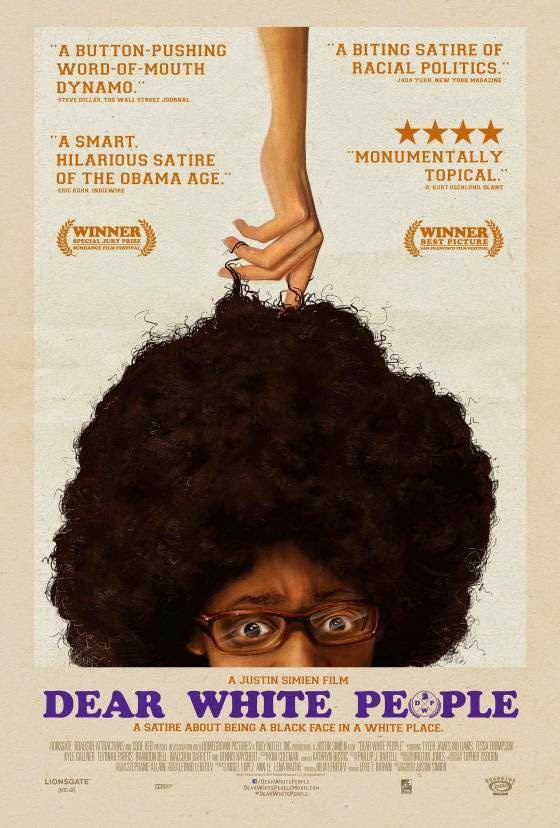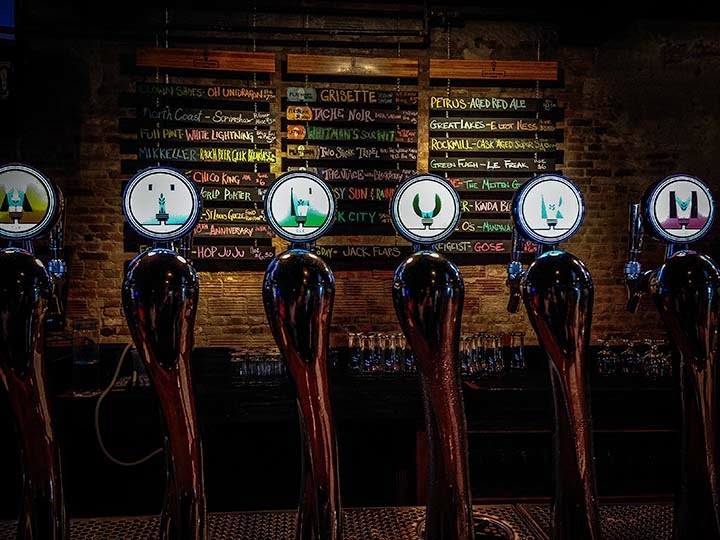2014 Youth Voices Conference: Food Justice
Cleveland Botanical Garden | Oct. 17 & 18, 2014
We’re used to critiquing trendy restaurants, exploring culinary trends and hobnobbing with the city’s most creative food minds, but we thought it was important to take a moment to highlight an issue that's even more relevant to the Cleveland food scene: Food justice, or the idea that everyone is entitled to access to good, healthy food. The Cleveland Botanical Garden’s Green Corp program seeks to address the gap by employing youth aged 14-18 (approximately 75 per year) in its urban gardens, teaching them sustainable agriculture, leadership and community engagement skills while growing produce for its farm market stand.
I sat down with Green Corps members Daniel Lewis, 17, and Renee Boyd, 16, to talk about this weekend’s Youth Voices conference, which will bring in other youth agriculture groups from throughout Ohio as well as Oakland, Chicago, Pittsburgh and Chanhassen, Minnesota, to discuss issues surrounding food justice and urban farming. Both are second-year veterans of the program with strong opinions about the local food scene as they know it.
CM: What made you want to participate in a group like Green Corps?
DL: I joined Green Corps to, like, build on my [skills] in making a garden. I want to be a chef when I’m older, so I thought if I could grow my own vegetables and fruits and stuff, I won’t have to rely on people to buy or supply them.
RB: Cut out the middle man.
CM: A chef? Where did that idea come from?
DL: When I was younger, my family always got together and cooked, and I always get happy when they’re cooking. That made me feel nice about it, so I thought if I could make people have that same joy that I have, then I could give back.
CM: So what's going on with the conference?
RB: We’re putting together a presentation about our group, our urban farm. And basically the reason for the conference is because there are other programs like ourselves, all over the country, and you know, like, working together is better than working alone. It’s a way to share and learn different things, learn from others.
CM: What do your friends and neighbors think about what you're doing?
DL: I really don’t think a lot of people know about it, because they don’t want to know, or nobody’s had time to tell them.
RB: When we do markets, we try to get as much word out as possible. ... I’ve been in that area, the Fairfax area, for a long time. ... I know there’s a lot of convenience stores more than you see farms. And it’s like, people talk to you, not necessarily from the neighborhood, but this group talked about food deserts, because there are all these convenience stores, there’s processed foods all over the place rather than real food from the ground that’s probably — it ACTUALLY IS better for you than processed foods.
CM: But you're teenagers. How do you really feel about junk food?
RB: I see a lot of people eating processed foods because it’s cheaper, and it’s closer to them. I could probably say there are about four convenience stores within walking distance of my home. Grocery stores? It’s a little bit of a longer trip.
DL: It’s the aspect of what they’ve grown up to. When they are growing up, they went to the corner stores and got some chips. It’s like a routine for them. They, usually when they had money, they’d go to the corner store and buy chips and a drink.
RB: It’s a matter of not knowing.
DL: They’re used to it.
RB: What we need to do is inform people. Show people that the youth DO care about this.
CM: Have your own diets changed as a result of your work with Green Corps?
RB: When I started, I was eating junk food, and my mom was trying to find a way to get us all eating healthier. Then I brought home some food from my garden that I grew in my own little plot, and my mom — this wasn’t her first health kick — so she just took it on, and we started going to the West Side Market, and we did this diet thing where we ate only food from the ground for a couple of months.
CM: How did that go?
RB: It was tough! I'm not going to say it was easy. The second week I broke down and had chicken wings. The ones in hot sauce [she laughs].
DL: Oh, the buffalo ranch ones?
RB: [Sighs] I did have the salad, though. But it was worth it. I felt a significant change in my body. I had more energy.
CM: So food is pretty important to your whole family?
DL: My parents, they made us stop eating cereal when I was young.
RB: Oh, don't worry! We don't drink pop at our house.
DL: When I was younger, we watched this video about food being bleached and stuff, like potatoes being bleached. And that changed everything, so we had to start eating organic. That made me mad because I had no cereal. ... After that I got used to it. So when I joined my farm, I had to walk to work, but when I got a bike, that’s when I started noticing change. I lost a lot of weight.
CM: What are you looking forward to the most from this conference? You have a lot of fun outings planned.
DL: That too, but I’m looking forward to learning what other gardens in other states have to say.
RB: I’m looking forward to the discussion. We came up with some questions that we thought might —
DL: “Are you hungry or are you starving?”
RB: That one can go anywhere.
DL: That was my question. Everybody thought it was a good question.
RB: Are you starving for real, healthy food? That's what I get from the question. We’re eating food, but it’s not really food.
DL: Even though, my dad says, “You've never been starving in your life.”
To support Daniel, Renee and other youth working to even the field, visit Cleveland Botanical Garden to purchase tickets to the Saturday event. Tickets are $15 for youth, $45 for adults.


























